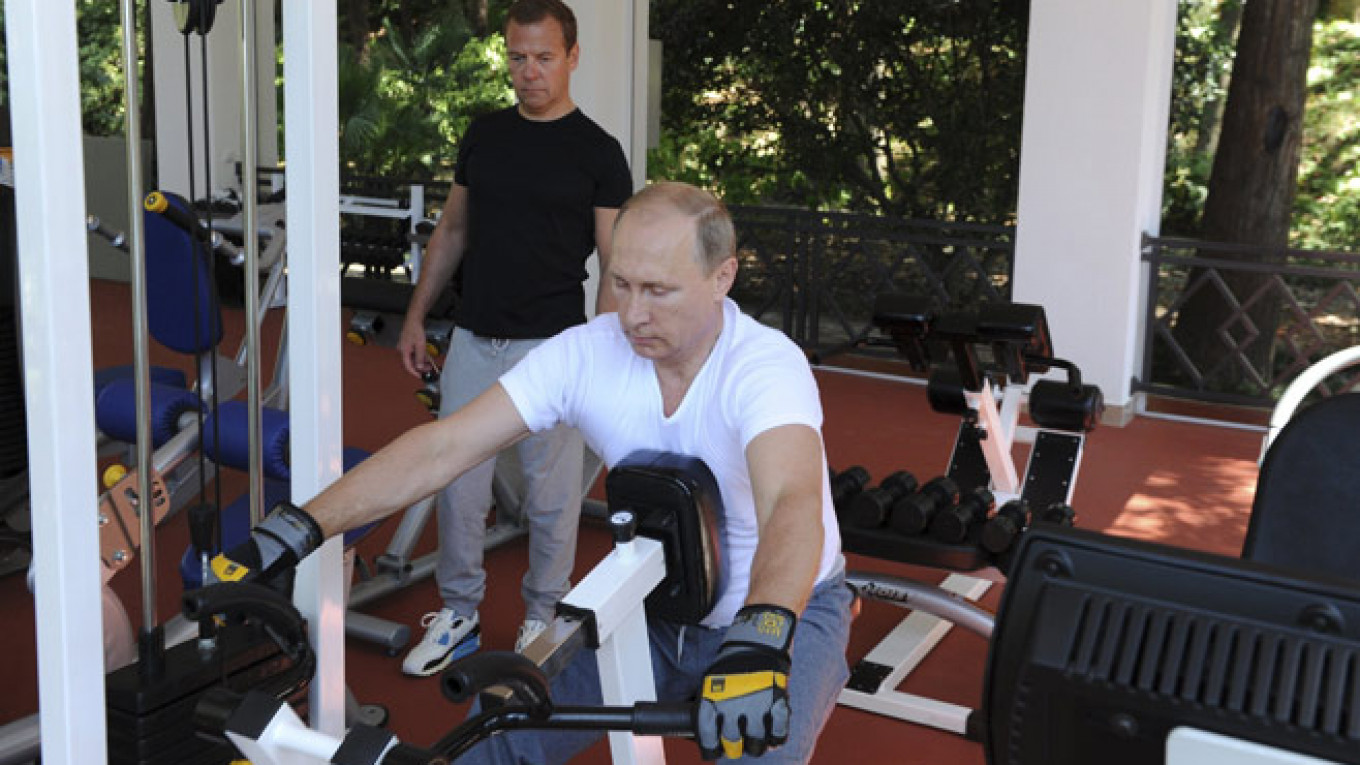In spite of pop culture stereotypes and a particular image cultivated by prominent Russian officials, Russian men are a stunningly diverse species. They encompass every type, from "quiet guy who works in IT" to "relentless artistic type who'll set the doors to the FSB building on fire as a statement." Categorizing Russian men is as pointless as categorizing men in general.
Still, there is diversity and then there is fashion. And it is important to note that what is considered fashionable for Russian men has quietly shifted.? I'm not talking about huge beards (which exploded in popularity before quickly becoming passe again) — I'm talking about what I'd like to refer to as the New Russian Masculinity.
Conspicuous consumption became popular with Russians shortly after the Soviet Union crumbled. It's a cliche to talk about it nowadays. Still, men who could afford to conspicuously consume — i.e. buy ridiculous luxury cars and dress their mistresses in diamond-studded underwear, or whatever — remained as a "masculine ideal" for years to come.
Of course, the Putin era complicated the notion of an oligarch (or his more down-to-earth version, the minigarch) as a girl's best friend. As Putin and his security services repeatedly showed, money in Russia is no guarantee of safety, especially if it does not go hand in hand with political loyalty.
In fact, one could argue that the Putin era has promoted a postmodern masculine ideal — a gray, shifty type, who works in government, travels behind the tinted windows of a black Mercedes, and combines great power with a secretive personality, like a bureaucratic version of Batman.
Still, you can't sell the "sly apparatchik" type to the masses. His insincere nature and preference for working behind the scenes makes him an antihero at best.
It was with the onset of the Ukraine crisis, with sanctions, counter-sanctions, a troubled economy and the end of stability that New Russian Masculinity began to really take shape. Its hero is the creative type, the Man with the Plan.
Fortunes are made and lost, just as political power plays are lost and won. Talent is what remains constant. You either have it or you don't. This is why Russian urbanites have fallen out of love with rich men and prefer the innovative artist, the small business owner, the tart-tongued journalist with a huge social media following, the controversial author, the tech start-up guru, the bookish director who makes movies about the meaning of life, and so on.
You'd think the taking of Crimea and relentless militarization of society would create the modern Russian military hero — but I would argue that Russians still prefer military heroes of the World War II era, i.e. they want to admire a glorious past from a safe distance. Restoring Russia's might is seen as important, but military casualties fill the public with dismay.
Economist Vladislav Inozemtsev recently argued that Russian history is full of pendulum swings that characterize its love/hate relationship with the West. I see something similar happening in relation to Russia's own quest for an identity.
Modern Russia is mercurial, moody, at odds with itself. This is why the New Russian Masculinity is so adaptable and resourceful. Russians are more interested in thriving rather than merely surviving these days, but thriving still takes quite a bit of improvisational skill.
A fat wallet or a big gun can only take you so far, and, consciously or not, modern Russians know this.
Natalia Antonova is an American playwright and journalist.
A Message from The Moscow Times:
Dear readers,
We are facing unprecedented challenges. Russia's Prosecutor General's Office has designated The Moscow Times as an "undesirable" organization, criminalizing our work and putting our staff at risk of prosecution. This follows our earlier unjust labeling as a "foreign agent."
These actions are direct attempts to silence independent journalism in Russia. The authorities claim our work "discredits the decisions of the Russian leadership." We see things differently: we strive to provide accurate, unbiased reporting on Russia.
We, the journalists of The Moscow Times, refuse to be silenced. But to continue our work, we need your help.
Your support, no matter how small, makes a world of difference. If you can, please support us monthly starting from just $2. It's quick to set up, and every contribution makes a significant impact.
By supporting The Moscow Times, you're defending open, independent journalism in the face of repression. Thank you for standing with us.
Remind me later.


